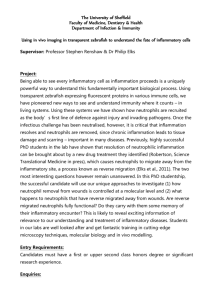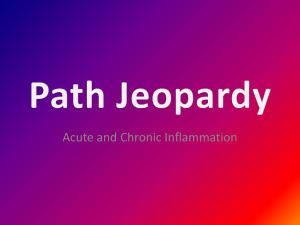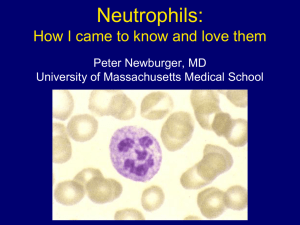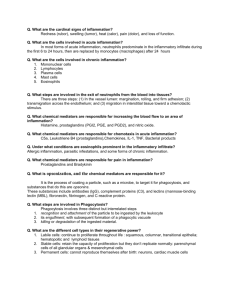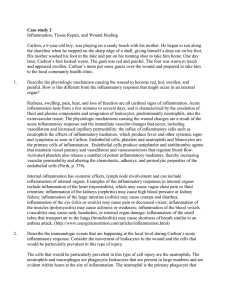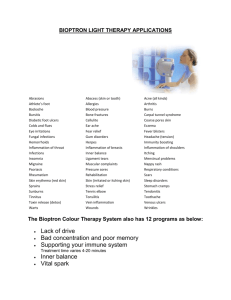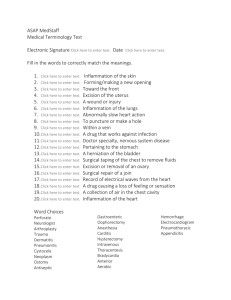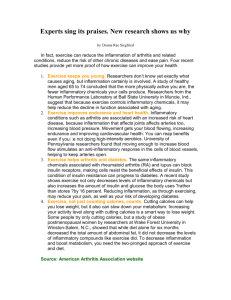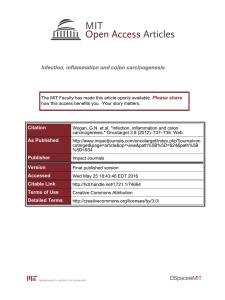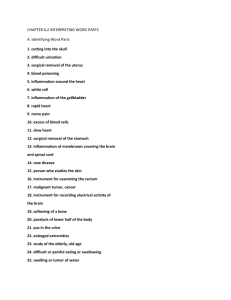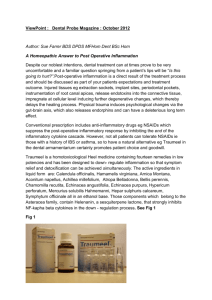Nociceptin mediated microvascular inflammation during sepsis
advertisement
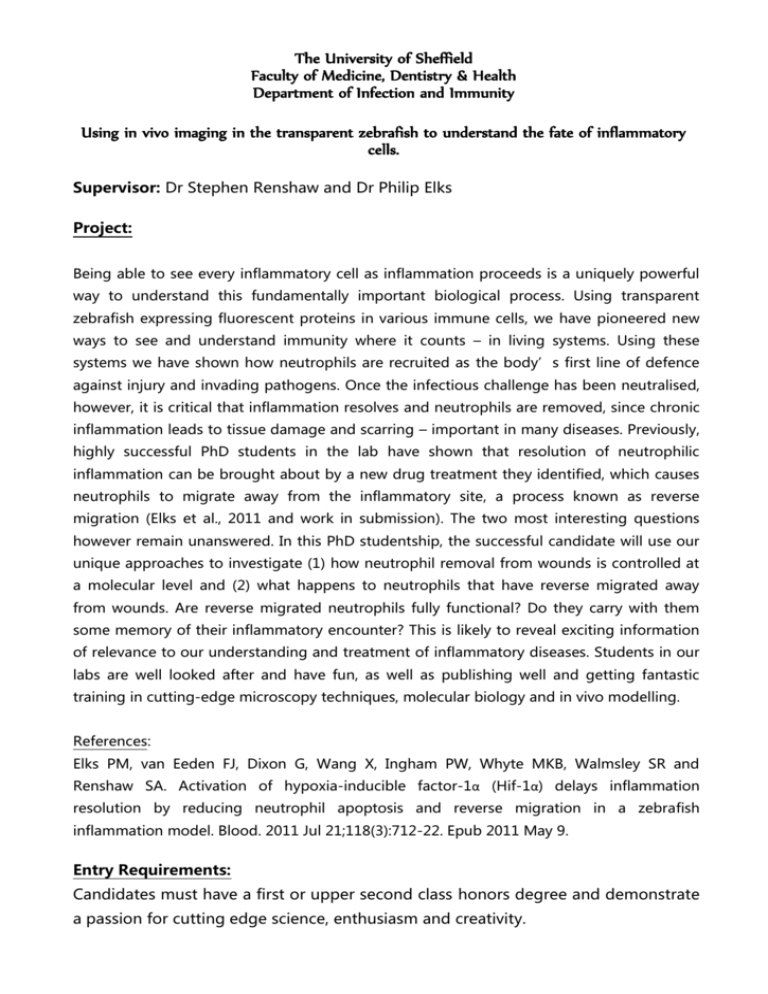
The University of Sheffield Faculty of Medicine, Dentistry & Health Department of Infection and Immunity Using in vivo imaging in the transparent zebrafish to understand the fate of inflammatory cells. Supervisor: Dr Stephen Renshaw and Dr Philip Elks Project: Being able to see every inflammatory cell as inflammation proceeds is a uniquely powerful way to understand this fundamentally important biological process. Using transparent zebrafish expressing fluorescent proteins in various immune cells, we have pioneered new ways to see and understand immunity where it counts – in living systems. Using these systems we have shown how neutrophils are recruited as the body’s first line of defence against injury and invading pathogens. Once the infectious challenge has been neutralised, however, it is critical that inflammation resolves and neutrophils are removed, since chronic inflammation leads to tissue damage and scarring – important in many diseases. Previously, highly successful PhD students in the lab have shown that resolution of neutrophilic inflammation can be brought about by a new drug treatment they identified, which causes neutrophils to migrate away from the inflammatory site, a process known as reverse migration (Elks et al., 2011 and work in submission). The two most interesting questions however remain unanswered. In this PhD studentship, the successful candidate will use our unique approaches to investigate (1) how neutrophil removal from wounds is controlled at a molecular level and (2) what happens to neutrophils that have reverse migrated away from wounds. Are reverse migrated neutrophils fully functional? Do they carry with them some memory of their inflammatory encounter? This is likely to reveal exciting information of relevance to our understanding and treatment of inflammatory diseases. Students in our labs are well looked after and have fun, as well as publishing well and getting fantastic training in cutting-edge microscopy techniques, molecular biology and in vivo modelling. References: Elks PM, van Eeden FJ, Dixon G, Wang X, Ingham PW, Whyte MKB, Walmsley SR and Renshaw SA. Activation of hypoxia-inducible factor-1α (Hif-1α) delays inflammation resolution by reducing neutrophil apoptosis and reverse migration in a zebrafish inflammation model. Blood. 2011 Jul 21;118(3):712-22. Epub 2011 May 9. Entry Requirements: Candidates must have a first or upper second class honors degree and demonstrate a passion for cutting edge science, enthusiasm and creativity. Enquiries: Interested candidates should in the first instance contact Stephen Renshaw (s.a.renshaw@sheffield.ac.uk) or Philip Elks (p.elks@sheffield.ac.uk). How to apply: Please complete a University Postgraduate Research Application form and attach at least two references to your application. To complete the application form please visit: www.shef.ac.uk/postgraduate/research/apply. Please clearly state the prospective main supervisor in the respective box and select ‘Infection & Immunity’ as the department. 'The Medical School has received a Silver Athena SWAN award for promoting gender equality’ Website: http://www.sheffield.ac.uk/faculty/medicine-dentistryhealth/graduateschool/prospectivepg/vacancies/ii Closing date: 3rd February 2014
